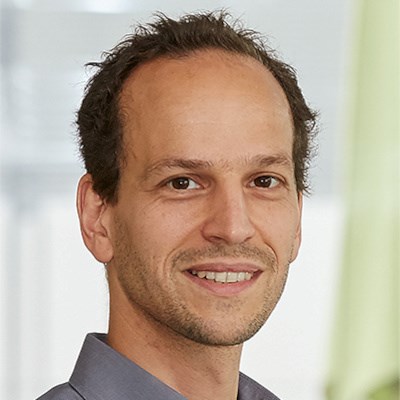Associate Professor
Dr. G.F. (Georg) Zeller, PhD
Area(s) of expertise:
Microbiome Research
Microbiome Research
&width=400&height=400)
Introduction
I have studied Computational and Molecular Biology (majoring in Computer Science) at Tübingen and Uppsala University. In 2010 I obtained a PhD for machine learning-based analyses of genomics and transcriptomics data from model organisms (A. thaliana and C. elegans) at the Max Planck Institutes in Tübingen. Afterwards I he joined Peer Bork’s group at EMBL Heidelberg to work as a postdoctoral fellow on analysing chemogenomics and metagenomics data. In 2015 I was appointed as an independent Team Leader at EMBL Heidelberg in the Structural and Computational Biology Unit. November 2023 I moved to the LUMC as an Associate Professor at the Leiden University Center for Infectious Diseases (LUCID) and have since re-established my research group there.
Scientific research
My research aims to better understand human microbiomes and their impact on health and disease.
Exploring if non-invasive detection of colorectal cancer (CRC) is feasible from gut microbiome profiles, my group established an accurate classification model through large-scale machine learning meta-analyses. Ongoing work assesses the prognostic potential of this CRC classifier.
To elucidate bacterial carcinogenesis mechanisms, the group investigates intratumoral microbes using multi-omics approaches, bacterial imaging and cellular infection models supported by an ERC Synergy grant.
Beyond cancer, Georg is interested in more general delineation of healthy versus diseased gut microbiomes (dysbiosis) across many disorders. For developing a quantitative model of dysbiosis he received an LUMC Fellowship.
Ultimately my work work will underpin the development of novel microbiome-targeting diagnostic, prognostics and therapeutic approaches to maintain health, prevent disease and improve treatment.
Exploring if non-invasive detection of colorectal cancer (CRC) is feasible from gut microbiome profiles, my group established an accurate classification model through large-scale machine learning meta-analyses. Ongoing work assesses the prognostic potential of this CRC classifier.
To elucidate bacterial carcinogenesis mechanisms, the group investigates intratumoral microbes using multi-omics approaches, bacterial imaging and cellular infection models supported by an ERC Synergy grant.
Beyond cancer, Georg is interested in more general delineation of healthy versus diseased gut microbiomes (dysbiosis) across many disorders. For developing a quantitative model of dysbiosis he received an LUMC Fellowship.
Ultimately my work work will underpin the development of novel microbiome-targeting diagnostic, prognostics and therapeutic approaches to maintain health, prevent disease and improve treatment.
